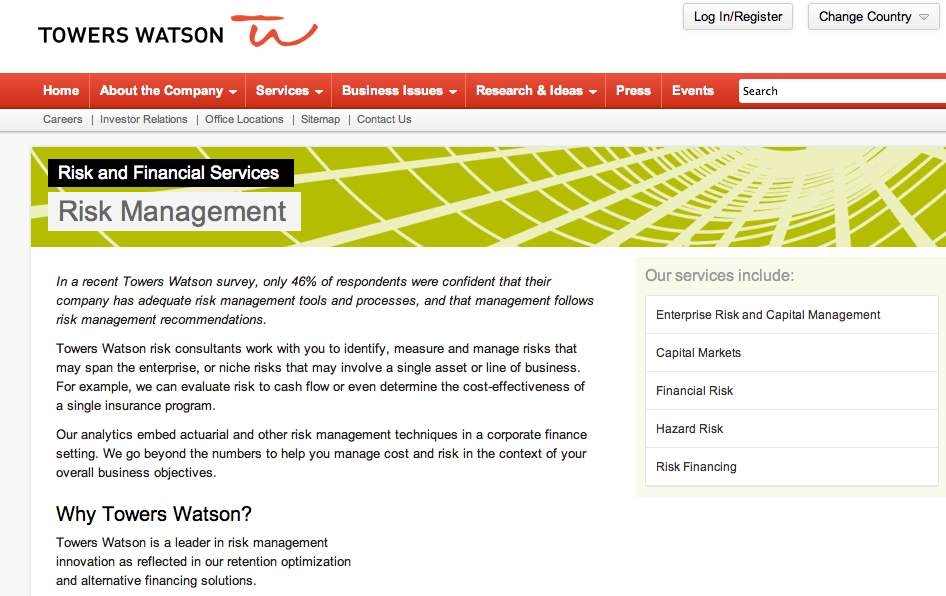
Companies preparing their accounts for corporate years ending 31 December 2011 could be set to report widening pension deficits, according to Towers Watson.
The consultancy estimates that, since the end of 2010, aggregate pension deficits in FTSE100 companies' accounts have grown from £40.9 billion to £48.0 billion.
John Ball, head of UK pensions at Towers Watson said: "Higher bond prices and fresh contributions mean that FTSE100 companies' pension assets are worth more now than they were 12 months ago, despite equities losing value in 2011. However, assets have not kept pace with rising pension liabilities. When interest rates are low, bigger liabilities must be recorded in company accounts."
As recently as October, the aggregate FTSE100 deficit was just £8 billion and companies might have looked forward to reporting an improved position on their balance sheets. John Ball said: "The precise picture will vary a lot from company to company depending on how the scheme's assets are invested and how soon its pensions have to be paid. However, most pension scheme sponsors will have experienced another bumpy ride during 2011. Volatility on this scale can jeopardise the numbers that companies anticipate presenting to shareholders but also presents an opportunity for schemes which are geared up to lock in short-term gains before they turn into losses."
Towers Watson says that worsening market conditions have given companies an added reason to review other assumptions that influence the pension obligations they disclose.
John Ball said: "Interest rates are currently lower over shorter periods and payments from most bonds fall due sooner than payments from pension schemes. Continuing to use an off-the-peg bond index to calculate pension liabilities can therefore make them look bigger than a tailored approach would do. However, it's not unheard of for interest rates to be lower over longer periods and a company that changes now would be expected to stick with its new methods if this happens again.
"Several companies are also revisiting the saving they banked this time last year after the Government said that some pension increases must now be linked to CPI instead of RPI inflation. While there is still a lot of uncertainty about the future, it is possible to argue that the gap is wider and the saving bigger than companies first assumed."

